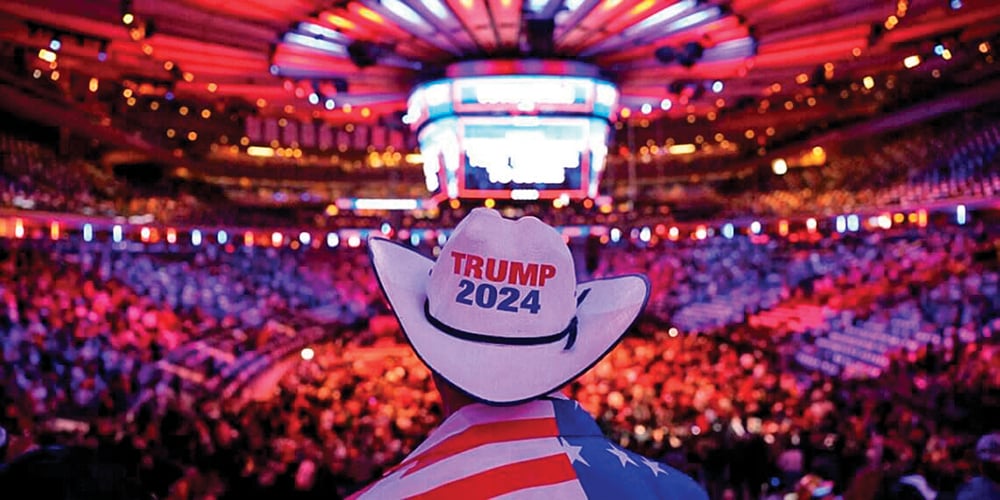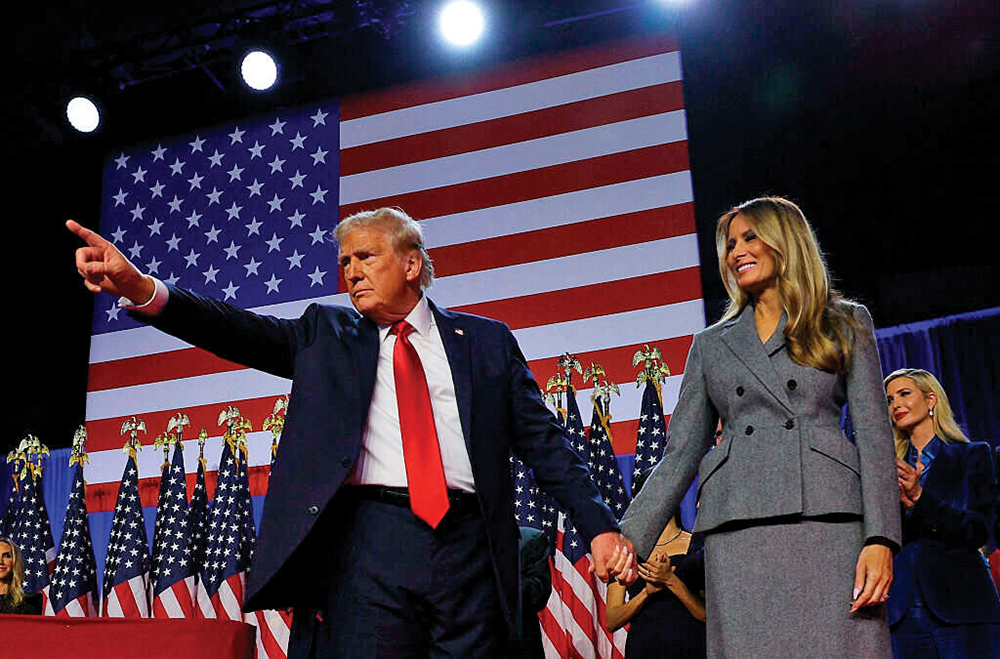Trump’s administration will lift Joe Biden’s restrictions on Israel, ensuring full support for Israeli needs.

The atmosphere at the West Palm Beach arena remained notably restrained on election night, despite the promising returns. The crowd’s measured response – whether stemming from the lingering shadow of 2020 or the familiarity of a second Donald Trump victory – stood in stark contrast to the electric shock of 2016. The hundreds of supporters present displayed enthusiasm without surprise; they had, after all, been the first to believe in Trump’s ability to achieve the improbable.
This victory places Trump in a rare historical category, becoming only the second president since the 19th century to secure non-consecutive terms. The only previous such occurrence was Grover Cleveland, who served as America’s 22nd and 24th president.
For multiple compelling reasons, Trump’s second ascent to the presidency carries even greater significance than his first. His return to power promises sweeping global changes: Trump will prioritize a rapid resolution to the Ukraine conflict. The author of “The Art of the Deal” will negotiate a settlement between Volodymyr Zelenskyy and Vladimir Putin. His approach will deny both leaders their maximum demands while refusing to allow an endless conflict without clear objectives.
The Israeli conflict will inevitably command his attention. Trump’s administration will lift Joe Biden’s restrictions on Israel, ensuring full support for Israeli needs. However, he will expect Prime Minister Benjamin Netanyahu to establish definitive timelines for military operations.
Trump’s victory over formidable domestic opposition – including seven pending legal challenges, significant resistance within the Republican Party he represented, and the united front of the Democratic establishment and mainstream media – signals an irreversible transformation in American politics.
The MAGA movement and the phenomenon of “Trumpism” have proven themselves not as temporary disruptions but as permanent fixtures in the American political landscape. Trump speaks of forging a new coalition that transcends traditional Republican Party boundaries, instead uniting various anti-establishment forces across America. Tellingly, his victory speech notably omitted any mention of “Republicans.”

The alignment of Robert Kennedy Jr – the scion of America’s preeminent Democratic dynasty – with Trump, specifically on anti-establishment grounds, powerfully illustrates the new contours of American politics.
The Republican Party has secured a Senate majority, yet this victory belongs less to traditional Republicans than to those who aligned themselves with Trump’s vision. Those who resisted this realignment had already departed the political stage.









